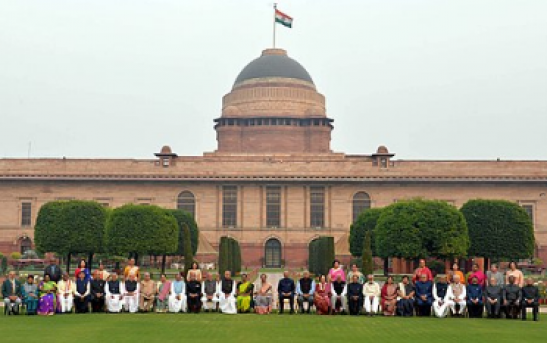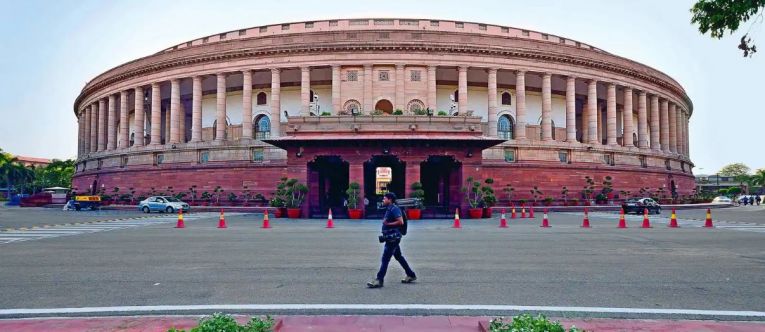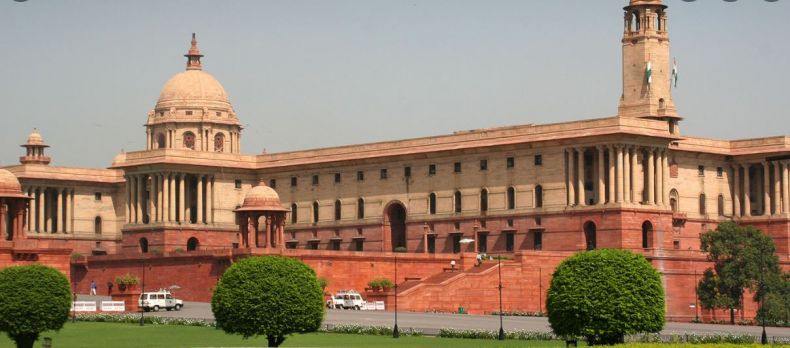State executive structures include the Governor, the Chief Minister, a Government Council, and the Advocate-General, four of the elements that form the structure of executive government in a state.
Each state is headed by a Governor who is the President. According to Article 153-167 of the Indian Constitution, the "state governments" of the country are the subject of several provisions in the Constitution.
The Governor is a constitutional head as well as a titular head, at the same time he acts as the agent of the federal government as each state has a Governor who is appointed by the federal government.
It's always been in the news about the dual nature of these roles and I think that's a significant aspect of the IAS Exam.
In the UPSC Exam, why should the topic Governor be considered important?
- The Lieutenant Governor of Puducherry, Kiran Bedi, has been replaced as of 16th February 2021. There exists considerable confusion about whether the LG of Puducherry will be Tamilisai Soundararajan, the Governor of Telangana.
- The state government of Maharashtra and its governor, Bhagat Singh Koshyari, have been in constant dissatisfaction for a significant amount of time now.
- As, concerning current affairs, candidates should keep up to date with information regarding the appointment of the Governor, his functions, and his role in the state alongside the Chief Minister and Council of Ministers.
In this article, we endeavor to give a brief description of the how to become governor, duties of a Governor, his duties and responsibilities, and the debate that surrounds the Governor's authority in state government
As well as to describe some of the articles of the State Constitution that have a reference to the Governor's office.
How To Become Governor
About Governor
In India, the governors of the states have similar powers and responsibilities to the president of the nation at the central level as do the governors of the states at the state level.
Unlike states, where the state governors are elected directly by the people, union territories, including the National Capital Territory (NCT), have district governors.
The Governor is the nominal head of state, but in reality, the power lies with state chief ministers and their councils of ministers, who are the real decision-makers.
How Governor is Appointed?

The Indian President appoints a Governor for each state by issuing and signing a warrant under his hand and seal, which can then be signed by the State Governor. Governors are not appointed by the state governments but are nominated by the central government.
Note:
The election for the post of Governor does not take place directly or indirectly, unlike the election for the post of President.
In the United States,
The Government of a state, or the Governor of a state, is not an executive agency that is covered by a union contract. Rather, a Governor of a state is an independent constitutional position held by an individual.
There is no relationship between the government of the union and the governor in any way. A Governor is appointed by the President of India after being nominated by the Union Government and by the governor himself following the model of government in Canada.
Who is qualified to become a Governor?

There are only two qualifications that a Governor in India needs to meet in order to be a Governor; unlike a member of Lok Sabha, Rajya Sabha, or even a President or Prime Minister who need to meet qualifications for the office:
1. The candidate should be a citizen of India.
2. It is desirable that he has at least 35 years of age.
Before a candidate for Governorship is put forward by the Government, there are two conventions that it follows:
- A person who does not belong to the state who is appointed as governor is not from the state. An outsider is a person who does not have any relationship with the state in which the appointment is made.
- President takes the Chief Minister into consideration when deciding on the appointment of a governor
Further, it is imperative to note that both of the conventions outlined above are not absolute, and the union government has actually breached them more than once in the past.
What are the powers and functions of the Governor?

The Governor's Executive Powers
- His responsibilities as an executive include the following:
- The state government, in its entirety, is prescribed to act in his name whenever it takes any executive action.
- The rules for the authentication of an order that has been submitted in his name can be specified by the Governor, so he can specify all the rules for the same.
- This is a change that can be made or not made by him in order to simplify the government's day-to-day business.
In addition to the Chief Minister, the States also appoint their cabinet members under his direction. - The responsibility of the Tribal Welfare Minister in each state is to appoint a tribal welfare minister in the following states:
1. Chattisgarh
2. Jharkhand
3. Madhya Pradesh
4. Odisha - The appointed advocate general of states is responsible for determining their remuneration, as well as appointing them.
- The appointed advocate general of states appoints:
1. State Election Commissioner.
2. The Chairperson and Members of the State Public Service Commission.
3. Representatives of the Vice-Chancellors of the state's universities. - The state's government will provide information for him.
- The government of the state is recommending to the President that a constitutional emergency be declared.
- As the agent of the President, the governor of the state has extensive powers as an executive during the period of the President's rule over the state.
Powers of the Governor at a Legislative Level
According to the constitution, the governor has the following legislative powers:
- Proroguing the state legislature and dissolving the state legislative assemblies are both within the power of the Governor.
- Every year, just before the first session of the state legislature, the Governor addresses the legislature.
The governor has the right to send a bill to the court of law in any case where a bill is currently pending in the court of law in - the state legislature.
- A person appointed by the Governor to preside over the session if the speaker of the legislative assembly is absent and the same is true for the Deputy Speaker.
- Among the total number of members of the legislative council, Governor appoints not less than 16% of the members from each of the following fields:
1. Literature
2. Science
3. Art
4. Cooperative Movement
5. Social Service - Similarly, the Governor nominates one member in the state legislative assembly representing the Anglo-Indian Community from the state legislature, as the President nominates two members in the Lok Sabha.
- In order to disqualify a member of the legislature, he can consult the Election Commission.
- As far as the bill that had been introduced in the state legislature is concerned, he can:
1. Assent to the bill.
2. Disapprove of the bill.
3. Send the bill back.
4. If the bill introduced in the state legislature would put at risk the position of the state high court, the bill should be reserved for the consideration of the President.
Powers of the Governor in Financial Matters
Among the responsibilities and powers of the Governor as it pertains to financial matters are the following:
- As the state legislature lays out the budget for the state, he looks over it.
- For a money bill to be introduced in the state legislature, the Governor's recommendation is a prerequisite.
- The Governor recommends requesting grants that would otherwise not be available.
- The State's Emergency Fund, which is under his control, is used to meet expenses that may arise out of the blue.
- In each of the five years during his tenure, he forms the State Finance Commission.
- Judicial Powers of the Governor
- In addition to the Governor's judicial functions, the following are his judicial powers:
- In addition to pardoning punishments, he has the following powers:
1. Pardon
2. Reprieve
3. Respite
4. Remit
5. Commute - Judges are appointed by the Governor after consultation with the President.
- Appointments, postings, and promotions of district judges are made by the Governor with consultation from the state High Court.
- The governor also appoints persons to the judicial services after consulting with the state high court and the state public service commission.
What is the Constitutional Position of Governor?

Several articles in the Constitution explain the position of the governor:
Position of the Governor under the Constitution | |
Article | Provision |
Article 154 | The state is headed by him as the executive head. According to the Constitution, the President will perform all executive functions on behalf of the country or behalf of officers below him. |
Article 163 | If he participates in the performance of a function at his discretion, he will receive guidance from the Chief Minister and Council of Ministers Note:
|
Article 164 | There is a joint responsibility of the State Legislative Assembly and the Council of Ministers The state's parliamentary system is based on this provision, which is the foundation of that system |
As the constitution notes, the governor is given the authority to decide whether a particular action is valid or not taken at his discretion, as long as those actions are necessary for light of the circumstances.
Discretionary Powers of the Governor
As opposed to the President of India, the Governor of state can act at his discretion, unlike the President of India. Depending on the situation, the governor may exert one or both categories of discretion.
Constitutional discretion is the first one, and Situational discretion is the second one.
Conclusion
In many cases, the powers of the Governor differ from those of the President of India, because the Governor is the Executive Head of the State.
A governor can be appointed in more than one state, and there can be no challenge to a governor-appointed in more than one state.
As Governors are appointed by the President, they serve at the pleasure of the President when they assume office and they are a part of the executive branch.
As stated in the Constitution, the Governor has several responsibilities that can be divided into several categories. His role as the executive head of the company gives him a lot of executive powers and he is also given a number several.
His legislative power gives him the authority to give or refuse his assent to bills. As well as summoning and proroguing the State Assembly when necessary. His other duties include granting pardons and summoning the State Assembly.
As far as financial matters are concerned, too, the Governor plays a significant role. In many cases, only the Governor can introduce a bill related to financial matters.
It is important to note that the Governor is often the one who takes over the functions of the State government and is of great importance when the State of Emergency is declared.
Due to this, the Governor, although only the titular head of state like the President, still has a great deal of power in the State.
Frequently Asked Questions (FAQs)
Q1. How are governors elected?
A1. Executive. A chief minister is the head of the state executive, consisting of the Governor, Council of Ministers, and the Council of State Principals.
There is no official term limit for Governors of States but they are appointed for five years by the President and hold office during his pleasure. A person applying for this office must be an Indian citizen with a minimum age of 35 years of age.
Q2. What is the salary of the Governor?
A2. There are stipulations in India's constitution that provide for the payment of a salary of Rs. 5 lac per month for the President, whereas the Governor of each state is paid a salary of Rs. 3.5 lac per month for the Governors.
A plan is mentioned in the Constitution of India's second schedule regarding the salaries and allowances of all government officials such as the Governor, the Deputy Speaker the Speaker, and all other officials of both houses of parliament, judges of both houses, etc.
According to Article 266(1) of the Constitution of India, a consolidated fund of the State is constituted. From the Consolidated Fund of India are deducted the salaries and allowances of the Governors of Indian states.
The Governor is a constitutional officer whose duties and responsibilities are established in Section 153 of the Indian Constitution, which established the Governorship.
Having said that, it is clear that a law cannot be passed without the assent of the President of India. Article 200 of the Constitution gives him the right to submit certain bills to the President for his assent.


